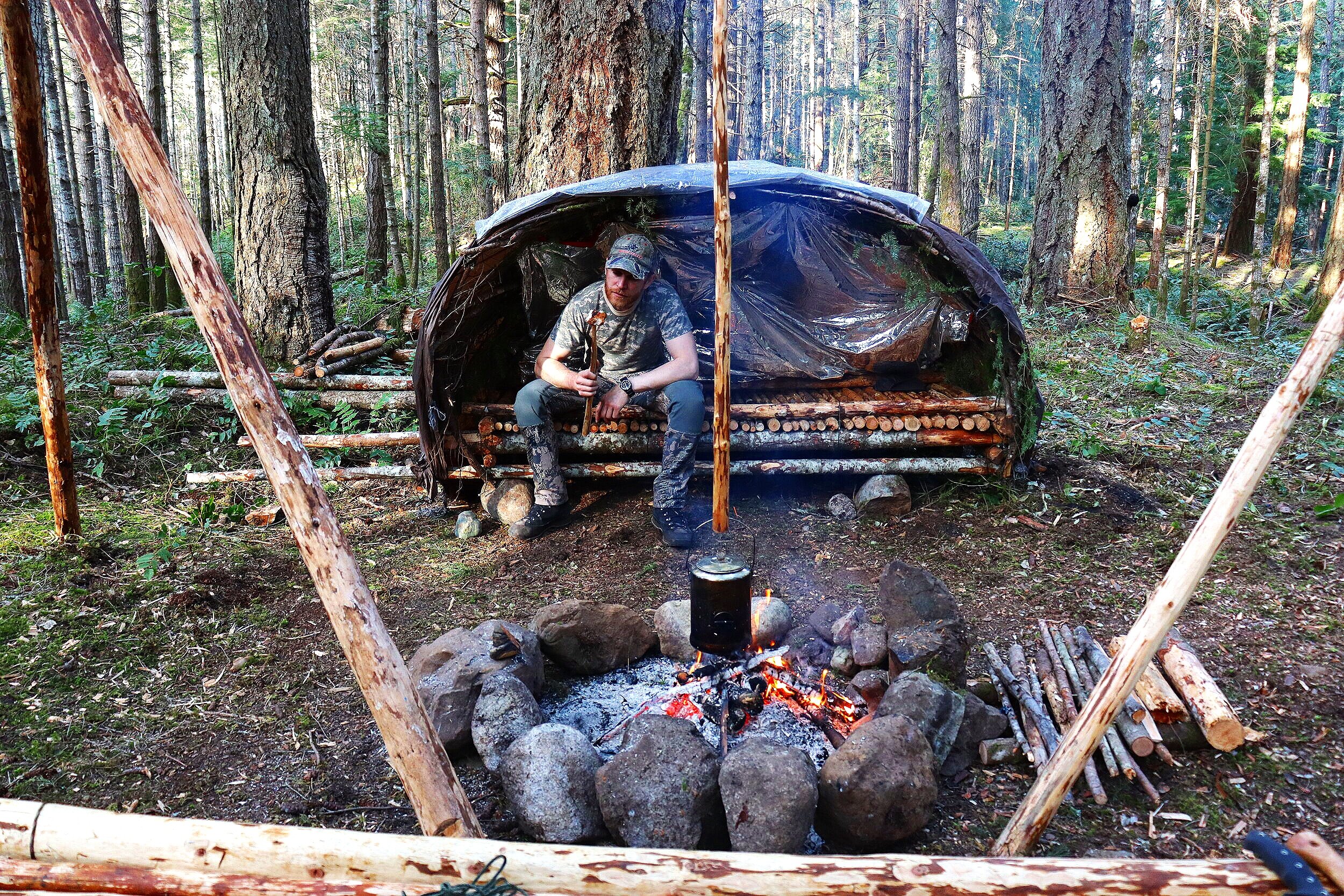Avoid optimism bias in the wilderness - be realistic.
Optimism Bias, the picture was shot by Vitaliy Svetlichnyy
Most of us tend to live our lives comfortably without needing to worry about potential predicaments and unforeseen situations. We surround ourselves with people and things that we are comfortable with and find security and happiness with that. It’s not that we consider ourselves to be lucky individuals who stroll through life without anything bad happening, it’s more to do with the fact that for some reason we feel overly confident that unfortunate events will not happen to us. We easily see this in real-life stories of outdoor enthusiasts who never expected anything bad to happen such as hikers who, dressed for a hot summer’s day, decided to hike up a mountain, got lost and found themselves in a snowy environment. Or, entire families getting lost while camping in popular areas after encountering and running away from wildlife. We clearly know that difficult situations arise, and we see that when keeping up with the news or social media. However, for some reason, we underestimate the likelihood of something bad happening to us more than we reasonably should. This tendency to underestimate the possibility of negative situations and overestimate positive ones particularly in our lives compared to others’ lives is known as optimism bias. In other words: “it will never happen to me!”.
“This looks so interesting and seems easy; even I could do it!”
Looking on the bright side of life appears to have some more immediate advantages as it procures good feelings and sets the stage for desirable expectations. It allows us to move forward with our everyday decisions with ease as the focus is always on the awaiting positive outcome. However, if our expectations are not met, we feel that negative blow twice as hard as opposed to the happy feeling we get if our expectations have been met. For example if we lose some money, the negative feeling we get is twice as strong as the positive feeling of gaining that same amount of money. Optimism bias presents itself in various ways in our lives. How often have we underestimated the time it takes to complete a project or the degree of skills needed to really master a new sport or hobby? Many people begin tasks or take up interesting hobbies only to find the amount of time and commitment required was way beyond what they assumed they could manage. No doubt many have tried to learn new skills and become overly confident in their abilities only to find that they have just explored the tip of the iceberg. It is therefore not surprising to find that on average it takes 10,000 hours to become an expert in a given field.
ONE WITH NATURE Survival School’s instructors have a lot of experience working with people who are very confident and optimistic about their skills in the beginning. For instance, they believe that they can build a shelter and make a fire relatively quickly. However, the majority of participants are not able to complete these tasks in the real wilderness, and we give them the opportunity to understand that. Our goal is not to create survival experts, (unless that is your goal and we can certainly help you on your journey to achieve that), but we do want people to become familiar with relevant outdoor life skills and practice them with seasoned instructors so that they can not only be more prepared to deal with unexpected events in the outdoors but also realize that it is indeed very possible that they could find themselves along with their family or friends in difficult situations. Knowing and realising that it is possible to get lost in the outdoors or to be involved in some misadventure is the first step in overcoming optimism bias and it means that we will treat our time in the outdoors with more responsibility for ourselves and for nature all while becoming more self-reliant.
Shelters, the picture was shot by Vitaliy Svetlichnyy
Of course, having confidence is a great thing. However, being overly confident and assuming bad things will never happen to us means that when faced with a sudden unexpected situation, the realisation that we do not possess the skills to deal with an unanticipated change in our lives causes us to panic. This panic, in turn, makes it even more difficult for us to think critically and to plan and prioritize what needs to be done. In challenging situations in the wilderness, this could mean the difference between life and death. If you become lost and the weather takes a turn for the worse are you able to stave off hypothermia and keep yourself warm and dry? Did you know that you could die from hypothermia in 2 hours? Could you make a safe fire to warm yourself within that time frame in the rainforest? If you have never done that, and you believe you can do that, it is highly likely that you are experiencing optimism bias. Perhaps you need to find water. Do you know how to find water in the wilderness and make it safe to drink? Many people believe that they can drink raw water from a creek and will not get sick from it. However, there may be waterborne diseases carried by bacteria, parasites or viruses such as Giardia, E. coli and Campylobacter to name a few. Maybe you just need to protect yourself from the elements. Are you able to build a safe shelter without tools and without damage to living trees? Humans are not the best at dealing with crises. Not only do we contend with optimism bias but we also prefer to reap rewards in the present rather than wait for a greater reward in the future. For instance, a nice big fire on a camping trip is great for our mood but using up all our fuel means we are in for a cold night. Furthermore, when faced with challenging situations we tend to not take any action even when things are not going very well, once again due to optimism bias. Developing a survivalist mindset can help offset these biases and challenges as it is not enough just to be physically prepared. We also need to be mentally prepared.
Understanding and developing skills for unexpected outdoor situations
Here in BC, we love the outdoors. Campsites are usually booked up and an increasing number of people are taking up outdoor activities from hiking to kayaking. We are happy to buy lots of great gear and watch multiple YouTube videos in the hopes that these will help us on our outdoor adventures. The thing is, equipment can fail, we may not have enough skills to use the gear properly or we can get injured. Even when outdoor enthusiasts realize they are lost, not only do they panic, but they underestimate the time it takes to find a safe place to spend the night and many start trying to contact others late in the afternoon once the temperature begins to drop and they realize that it will be getting dark soon. They have not given much thought to what their survival priorities are and as a result, their lack of preparedness increases the risk of a bad outcome. Developing outdoor survival skills and learning how to plan and prepare for outdoor adventures is a great way not only to connect with nature but it can also help us to understand realistically what our abilities are and how important and transferable practicing outdoor life skills can be. In understanding your actual capabilities, you would decrease the chance of negative outcomes that are the result of optimism bias.
Renita Silva, Vitaliy Svetlichnyy



